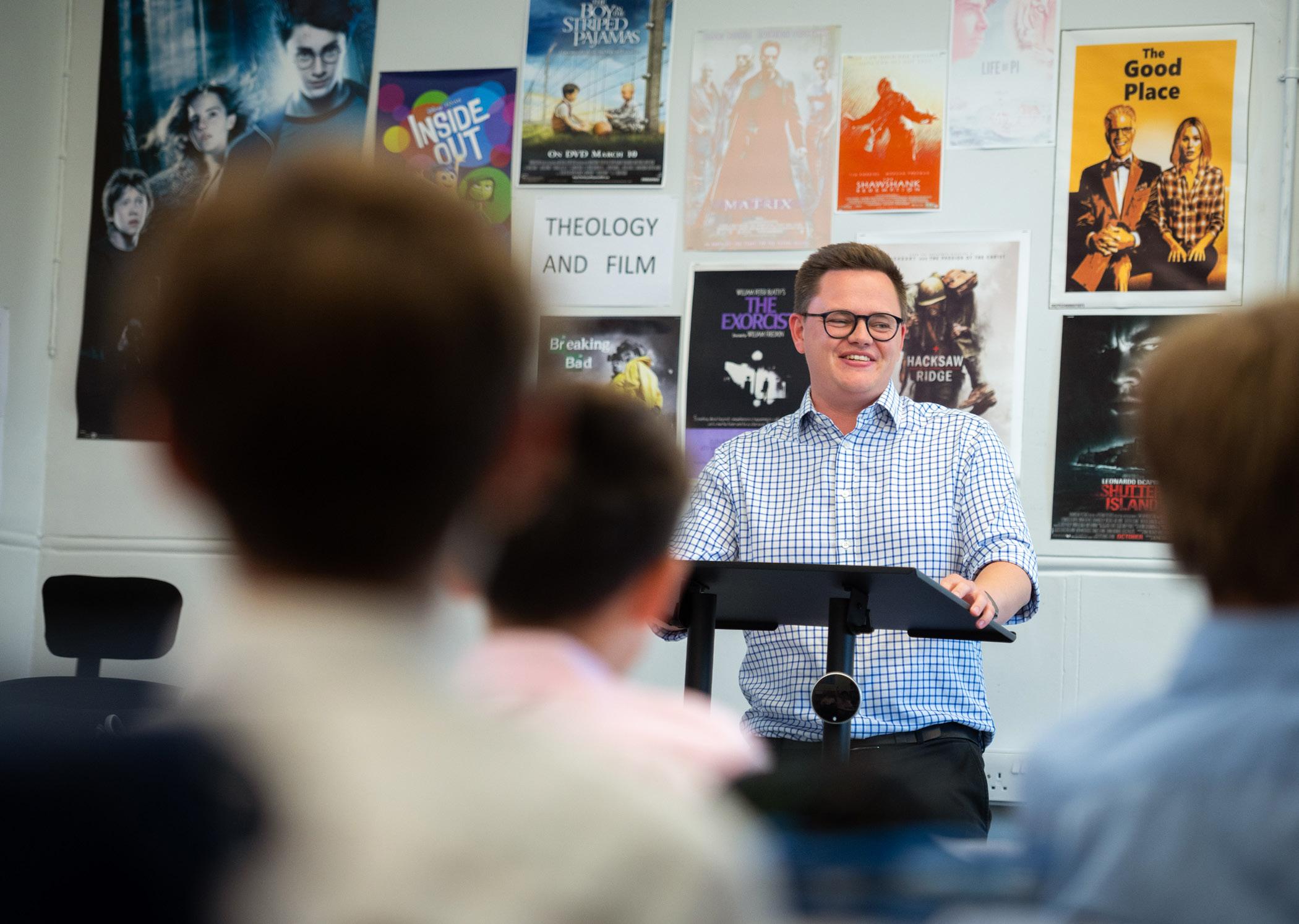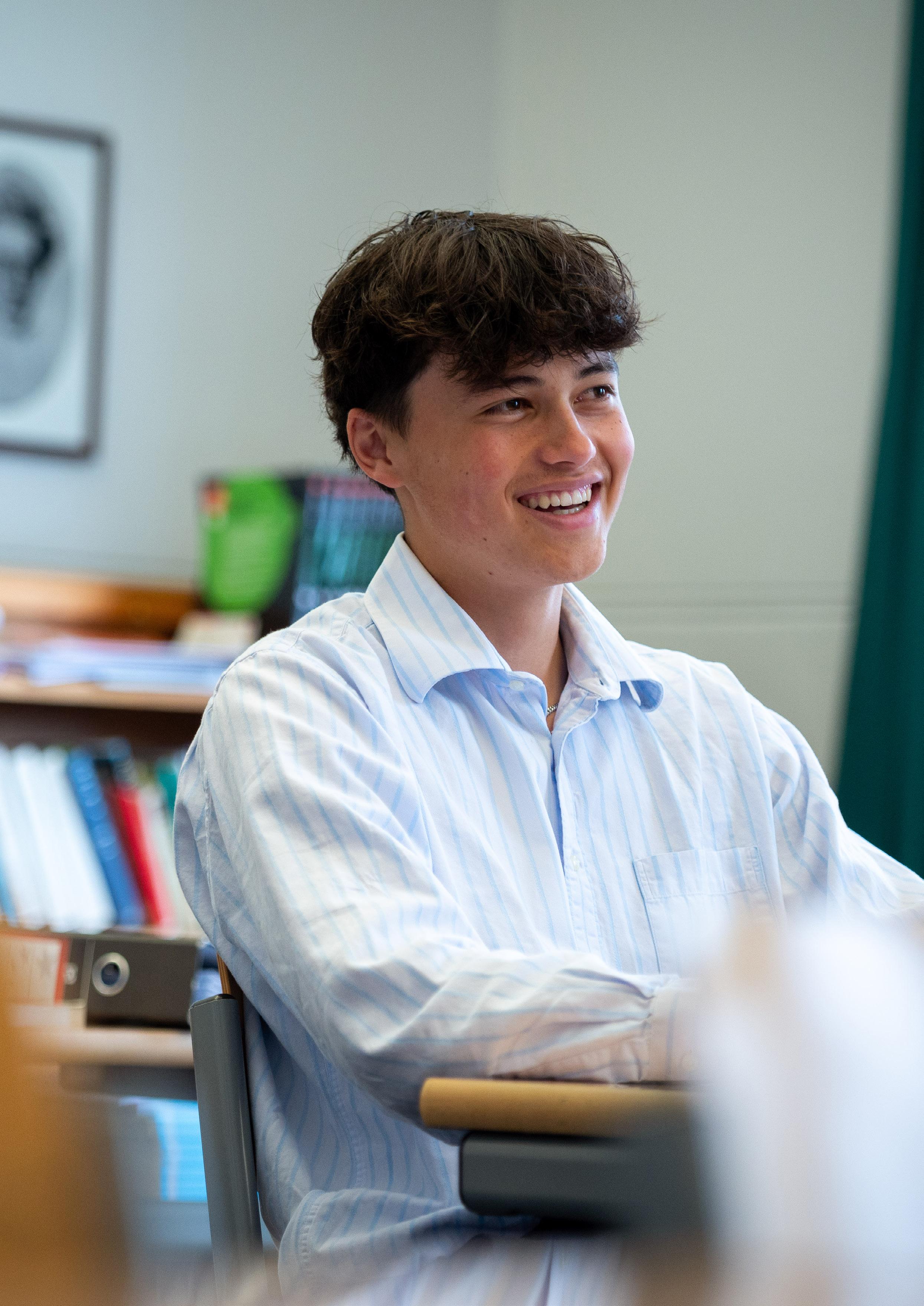

CHOOSING YOUR GCSES
INTRODUCTION
The aim of this brief is to outline the curriculum which boys take at Radley in the Remove and Fifth Forms (years 10 and 11 in National Curriculum terms).
That curriculum consists firstly of a Core of compulsory subjects — English, Maths, Science and one Modern Foreign Language — which are examined, as well as a course in Theology and Philosophy in the Removes, which all boys attend but which does not lead to public examinations.
Boys in the top sets are prepared for both English Language and English Literature GCSEs; boys in the lower sets benefit from a focus in the timetable allocation on attaining high grades in English Language. Some Science sets take Dual Award Science GCSE (equivalent to two GCSEs) whilst others will take three individual Science GCSEs. For more information see https://www.radley.org.uk/learn/ curriculum/
Some boys are entered early for one or more of these core subjects; for example, in Maths boys in higher sets take IGCSE (International GCSE) in the Remove year. In practice this policy ensures that the more able boys can be stretched beyond the scope of the GCSE syllabuses.
In addition, there is a selection of Option subjects, each of which is taken to GCSE or IGCSE. In choosing a combination of five options, certain advice might be borne in mind. It is, educationally speaking, desirable:
to study a humanity, History or Geography;
and – where there is an aptitude –
to pursue a practical or artistic subject (Design and Technology, Art, Theatre Studies or Music).
It is distinctly possible that a boy may have a particular leaning. The Option Block system thus permits the choice of subjects to satisfy those with special inclinations, allowing Greek and Latin, German and Spanish, Art and Design.
For the all-rounder, choosing five options can be an agonising matter, and discussions with appropriate Heads of Department, current Form Master and Tutor will be important. Each year a number of boys find it difficult to give up subjects they have enjoyed in the Shells.
On the next page you will find Radley’s block system for optional GCSE subjects. Following a GCSE option choices meeting for boys during the
Lent term, we ask them to submit provisional GCSE option choices which are then reviewed by Heads of Departments, Tutors and Subject Teachers ahead of the Shell parents’ meeting at which each boy’s option choices are formally discussed. The blocks are fixed and one option only should be chosen from each block.
We regret that, in a few cases, preferred combinations will not be possible. In schools where there is individualised timetabling (no option blocks), there tend to be very mixed ability sets. In many cases, we believe this is detrimental to boys.
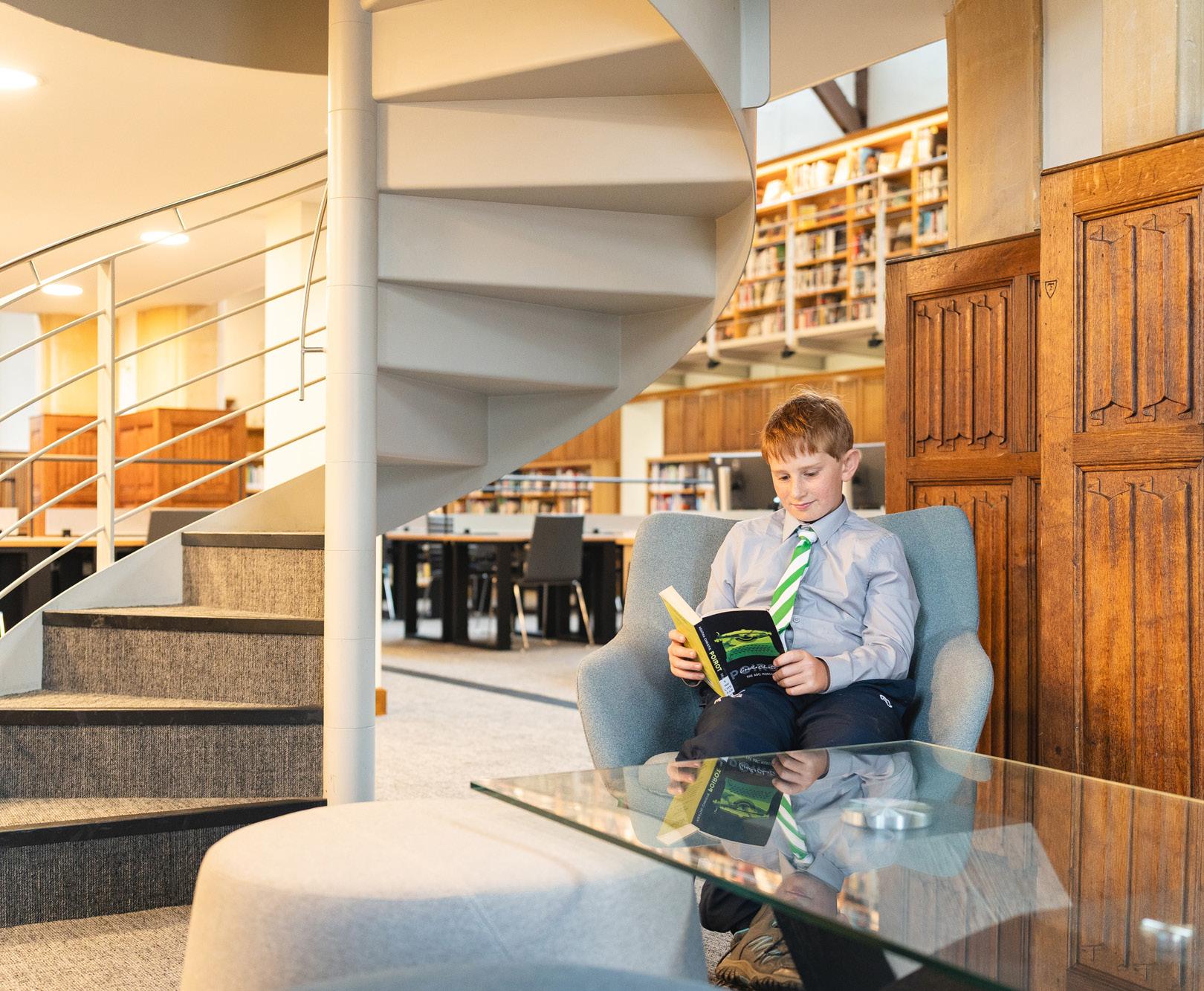
OPTION BLOCKS
Theology
Theology & Philosophy Drama French
NOTES
All boys must choose at least one Modern Foreign Language.
Boys may opt to do either Design course, but they may not do both. Due to Health and Safety policy, Design is limited to 24 boys in each of blocks 2 and 4.
Due to timetabling requirements, Geography is subject to a maximum of two sets in block 2, but there is no limit on numbers in block 3.
Computer Science, while an excellent course, is highly demanding. Suitability for the course will be based on a student’s attainment in Shell Computer Science.
If any subject has a very low take-up then we reserve the right not to offer it in all of the blocks.
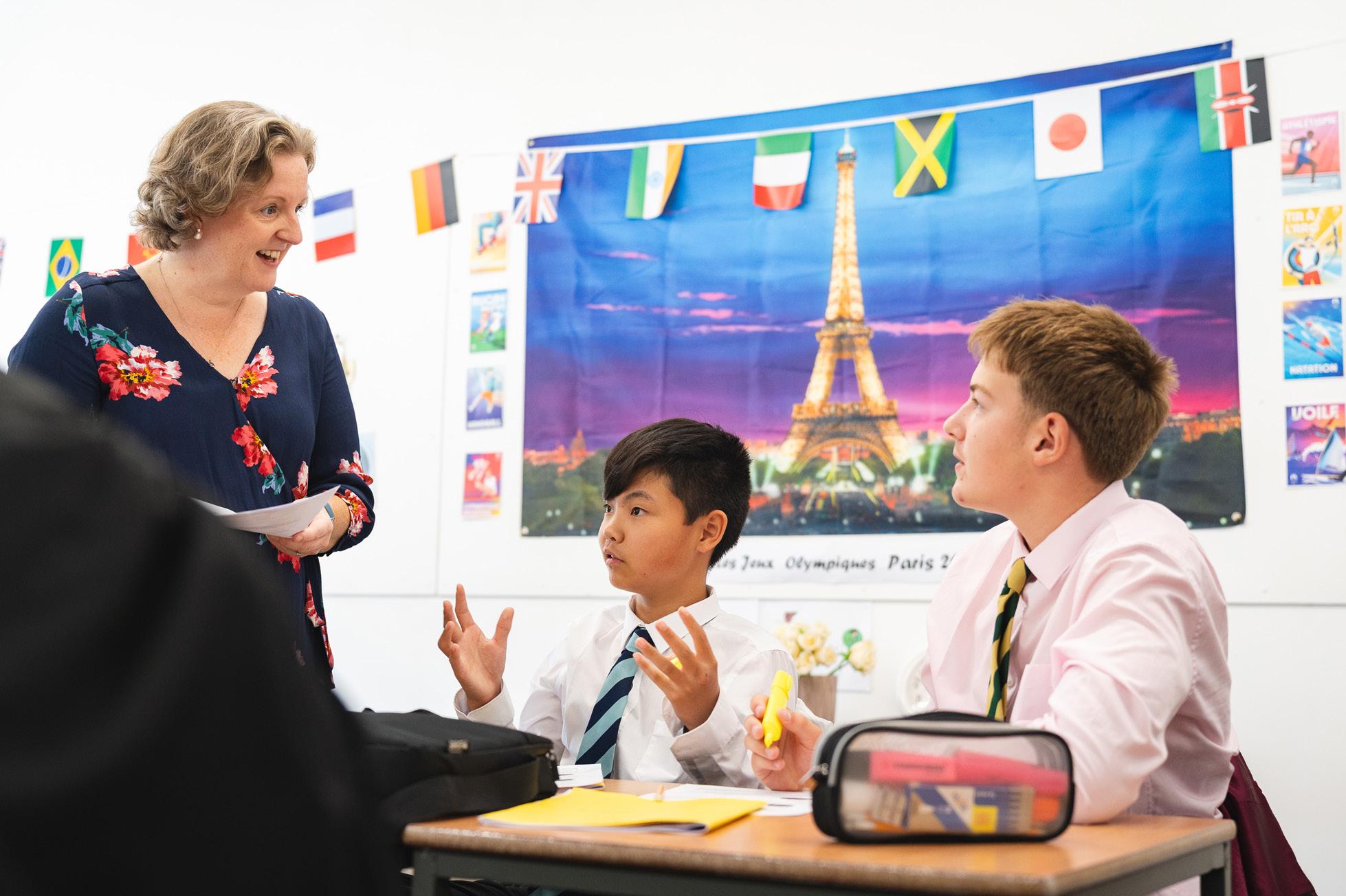
ART
Why study Art and Design at GCSE?
GCSE Art and Design, a practical subject, can be an excellent addition to subject choices to create a broad and balanced curriculum for GCSE study. It can also be an excellent foundation for whatever boys want to do in the Sixth Form. During the GCSE Art and Design course, the students develop an exciting and extensive range of creative and technical skills. In addition, many transferable skills can also be obtained, such as analysis and problem-solving, understanding of aesthetics and developing visual literacy, all of which can complement a range of other subjects. Those students with a comprehensive skill set will benefit in school and beyond.
GCSE Art and Design suits students interested in working in a wide range of media. Boys are encouraged to be experimental, to work from observation and imagination, and to develop their ideas from the beginning to the end. Media may include painting, mixed media, sculpture, ceramics, installation, printmaking, moving images and photography. Our close links with the Design Engineering Department, located adjacent to the Art Department, mean that boys can create final work/installations that are even more ambitious and technically exciting, with access to laser cutters, woodwork and welding materials. With the fast-moving, ever-changing art world, Radley School of Art continues to embrace both traditional methods of art making whilst also exploring new technologies, contemporary materials and new ways of working. Boys are also encouraged to research and respond to the work on show in the Sewell Centre Gallery, attend the many talks given by visiting artists, review work and read journals and periodicals available in the comprehensive art library and use the Art Department’s computers and iPads for research, all to help put art into a context as this is an integral part of the examination curriculum. The Art Department also runs several trips to provide stimulus outside the art studios and further engage boys in a broader range of visual experiences. The last three years have included our annual trip to Florence and numerous visits to galleries and exhibitions within the UK.
What are the key features of the Art and Design GCSE course?
The GCSE course is split into two components: a coursework portfolio consisting of a large, practical project and an externally set exam task. The coursework element, up to 60% of the marks, teaches boys self-discipline, focus, organisational skills and time management. The set task ends with a 10hour exam during which the students independently realise their response(s) by producing one or more art pieces. This externally set exam task is often completed during the first week of the Summer Term and, therefore, GCSE Art and Design finishes well in advance of other GCSE subjects.
During the GCSE Art and Design course, boys learn to think and act as artists, makers and designers, working creatively and intelligently. Boys develop an appreciation of and engagement in art, craft, and design as critical consumers and audiences, as well as an understanding of its role in the creative and cultural industries that shape and enrich their lives.
We follow the OCR GCSE Art and Design (Fine Art) exam.
You can read the full specification here.
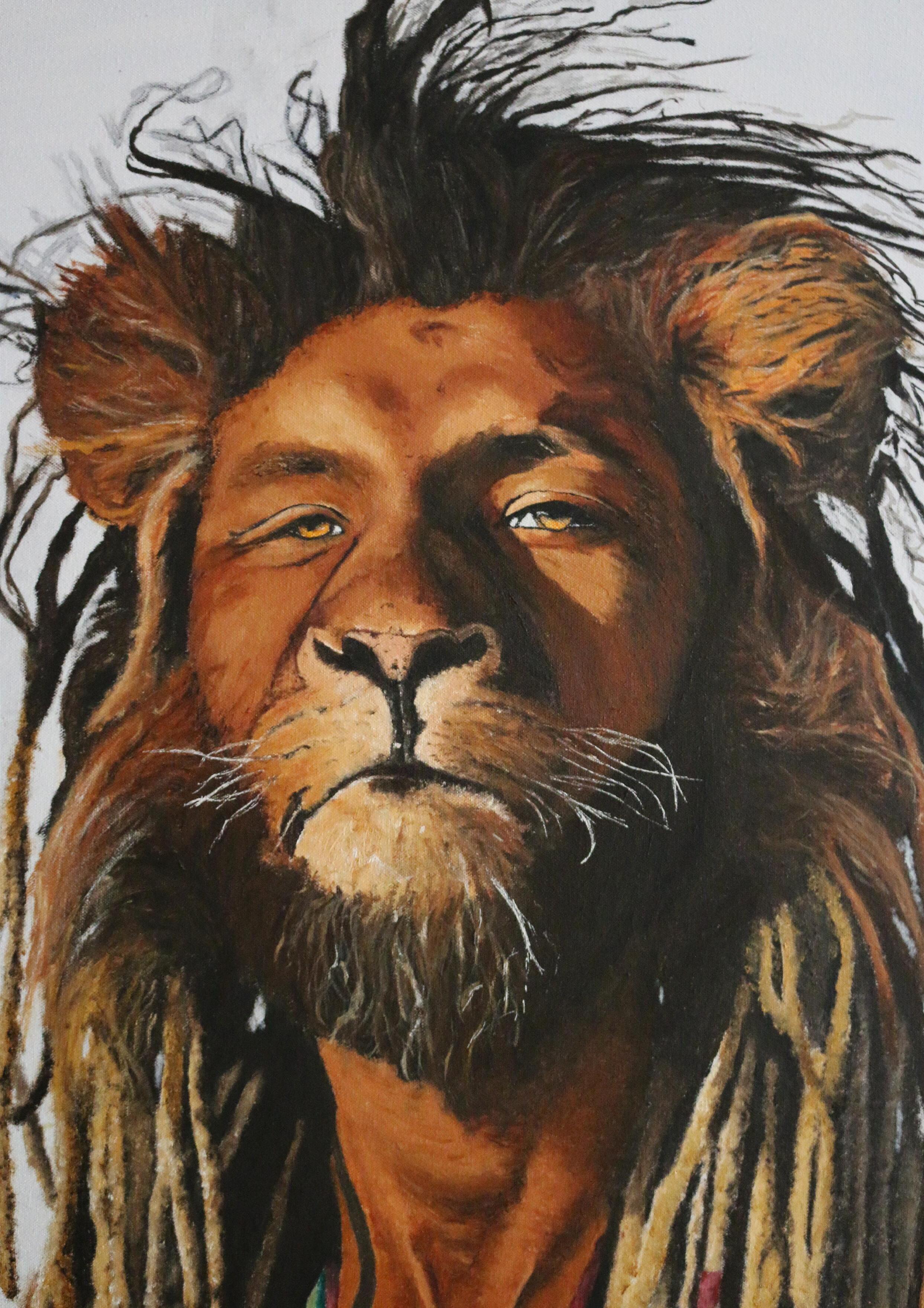
CLASSICAL CIVILISATION
Why study Classical Civilisation at GCSE?
Classical Civilisation GCSE is a great option for anyone with an interest in the history, archaeology, literature and mythology of the ancient world. It has proved particularly popular over the years with boys who enjoy learning about ancient Greek and Roman culture but who find Latin (and Greek) less to their taste (although for real enthusiasts of the Classics it can be, and sometimes is, combined with the languages). You will learn about ancient religious beliefs, look at famous temples like the Parthenon, read stories such as the Circe and Cyclops episode from The Odyssey (in English translation!) and study Bronze Age citadels such as Mycenae. You will see how the Classical past still has an influence on modern European culture and understand the modern world better by comparing and contrasting it with the world of the Greeks and Romans.
What are the key features of the Classical Civilisation GCSE course?
We study the Myth and Religion and Homeric World units of the OCR GCSE course. In the Removes we start by covering half of the former topic. We look at the Greek and Roman gods; the various stories about, and worship of, Heracles; and temples, priests, sacrifice and worship. We then move to the literary section of the course that is often a favourite for students – selected books of The Odyssey. In the summer we study the Mycenaean world, primarily an archaeological topic, and in the first term of the Fifth year we finish the Myth and Religion unit looking at festivals, symbols of power and the beliefs about death and the afterlife.
There are two 90-minute papers at the end of the course on the two units. Many marks are available for short answer factual questions. The skills required for these two papers have a fair bit in common with those needed for History and English papers. However, there is a wide variety of material covered, and boys develop an interesting range of capabilities, including the ability to write critically on pieces of visual art.
Typically, 40-50 students take Classical Civilisation at GCSE either in Option Block 3 or 4. No prior experience of classical studies is required for the course, merely an interest in the subject matter.
You can read the full specification here
CLASSICAL GREEK
Why study Greek at GCSE?
Classical Greek is an excellent GCSE option for students who excel in Latin and have a keen interest in the Classical World. The course structure and required skills closely mirror those of the Latin GCSE, and the many linguistic similarities make the study of both languages together at GCSE complementary and efficient. Greek at GCSE is typically taught in one small set of 6-10 students, creating an intimate learning environment of students with a shared passion for the Classical World and its languages. Studying Greek as a Shell is challenging as it must be taken off-timetable; students who elect to take the subject at GCSE invariably find the language less challenging than expected, thanks to the increased frequency of classes and preps. The chance to study one of the Homeric works (the Iliad or Odyssey) in the original language is the highlight of the course for most students. The study of Classical Greek at GCSE represents a unique and rewarding opportunity. It is well regarded as a qualification and provides an opportunity for students to differentiate themselves from their peers.
You can read the full specification here.
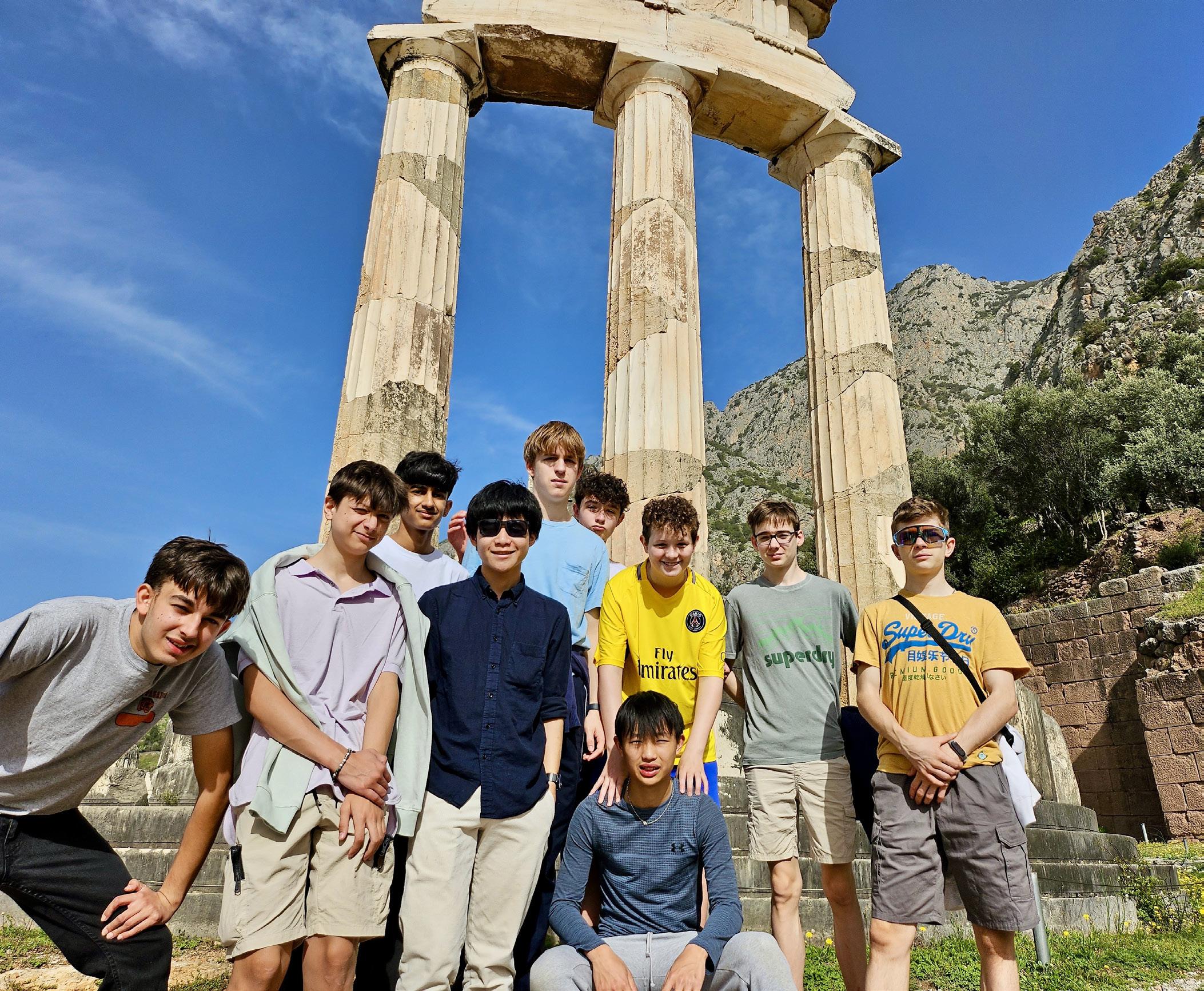
COMPUTER SCIENCE
Why study Computer Science at GCSE?
Our world is evolving at an electrifying pace and disruptive technology is increasingly the norm as the pace of development accelerates. Technology now permeates every field of human endeavour in ways hitherto unimagined, whether it be new ways of understanding ancient artefacts with data visualisations or building autonomy into devices exploring the hitherto unknown. The foundation of this revolution is now clearly core knowledge for all - not just those aiming at Computer Science in its purest forms for higher study. GCSE Computer Science provides those that study it with a greater understanding of the new forces that dominate society through science, the arts, politics, warfare and more.
What are the key features of the Computer Science GCSE course?
GCSE Computer Science gives a ground up view of computation starting at the foundation with transistors and logic gates. It is a subject with a deep root in theory and a strong link to application with learning taking a route through logic and computation, physical hardware, programming and the digital impacts and considerations of society at large.
Systems Architecture: The Central Processing Unit and Hardware
A journey into the digital microcosm proceeds from the interactions of individual transistors and logic gates all the way up to the modular workings of the CPU and the von Neumann Architecture. The wider components - RAM, ROM, mass storage and other peripherals within computer systems are considered and the role of the operating system and its relationship to application software is introduced.
Data representation
A working knowledge of binary and hexadecimal number systems alongside Boolean logic provides a basis for building ability in programming. The relationship of digital data to analogue sources is also introduced, as well as some consideration of how that data is compressed and stored as binary data.
Programming
A working knowledge of programming in high-level languages, including Python, as well as an understanding of the purpose of machine code and other low-level processes is built throughout the course. Key skills in program design using pseudocode and flowcharts are translated into applicable code, developing skills in variable and constant use, conditional statements and iterative structures, subroutines and datatypes. Skills in debugging are also refined alongside learning to design to specification and complete the process with rigorous testing and debugging. Methods are introduced including data handling in and out of external files and databases.
Computational Thinking and Algorithms
Algorithms are increasingly a driving force in the modern world and understanding of the various algorithms that are used to solve certain problems is a core part of the course. While sequence, iteration and selection are fundamental and clarified as programming skill grows, the wider models of abstraction and decomposition feed into that skill strongly. Specific algorithms for search and sort are covered and learning to trace the flow of information during execution is a key part of this content.
Networks and Digital Impacts
A technical understanding of the hardware and data protocols that drive networking at all geographical scales provides a backdrop for content covering the wide range of positive and negative impacts of technology. Ranging from ethical considerations of the Digital Divide and how fundamental access to the Internet has become to personal views of privacy, personal data and safety; the course is widereaching in its application. Knowledge of cyber-security and the crime it defends against includes consideration of network attacks from Denial of Service to malware and social engineering and is highly relevant to the shape of society currently.
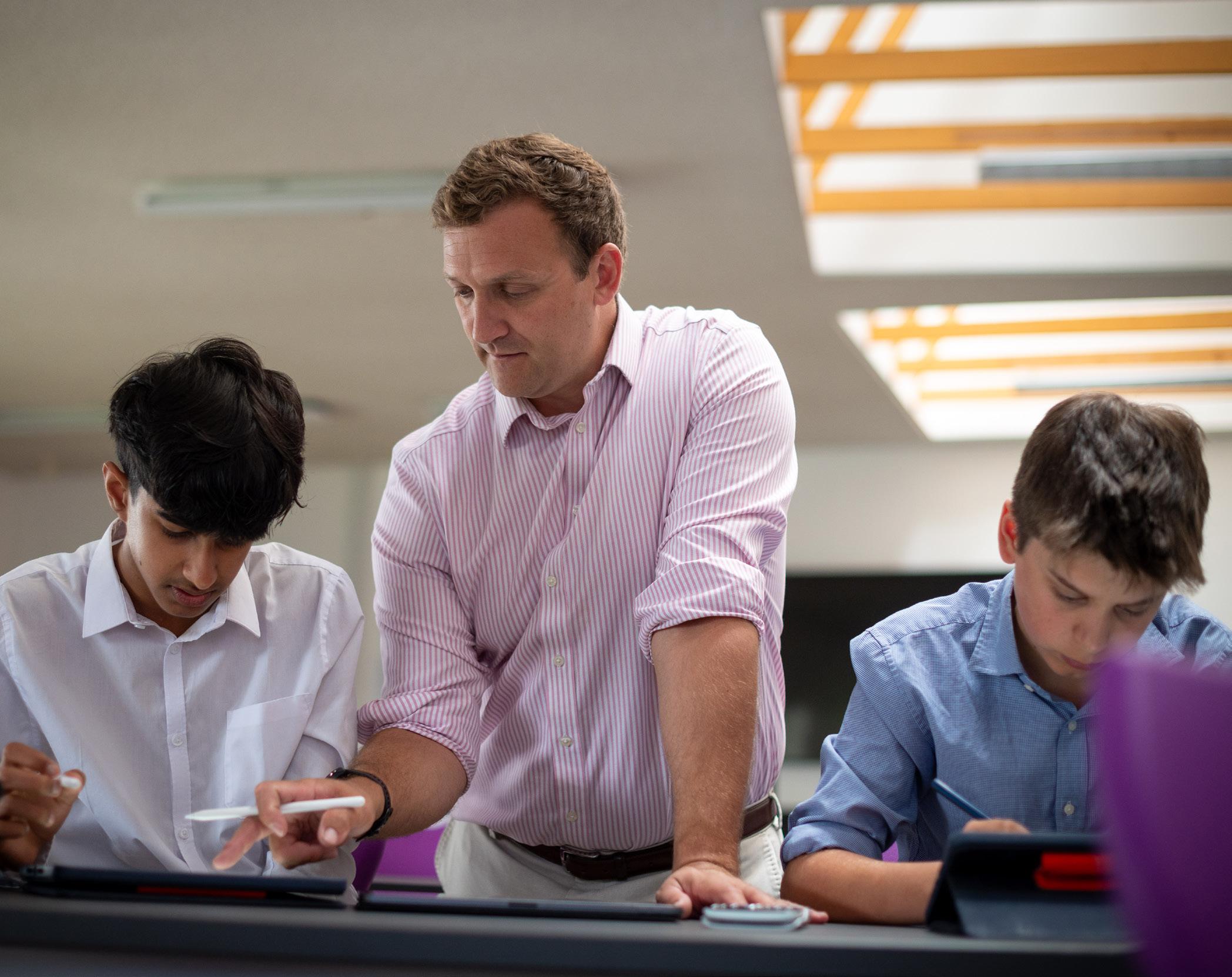
DESIGN & TECHNOLOGY
Why study Design & Technology at GCSE?
The knowledge and understanding you get from D&T projects give you transferrable skills that you can apply to solving real issues in the real world. Collaborative working, iterative design approaches, planning and problem-solving are skills you can put to use in a vast range of career options.
Careers for the future: Technology is developing all the time and keeping up with fast-paced change is essential. The jobs people will be doing tomorrow will be radically different from many of those done today. Future-proofing your prospects is essential if you are to have control over your choices. GCSE D&T opens doors to a wide range of careers in the creative, engineering and manufacturing industries, as well as medicine, law and computer science.
The knowledge and skills you learn, such as teamwork and time management, will be valued by employers. Creativity and innovation: create fantastic designs and make brilliant products. D&T is purposeful, but it’s also exciting and fun! Studying D&T will involve you in learning about designing and manufacturing, using your knowledge and skills to design and make new and better solutions to real problems – on your own and with others – working with the materials you choose.
What are the key features of the Design & Technology GCSE course?
D&T isn’t JUST one subject, it’s a fusion of lots of areas and includes many aspects of Maths and Science. It teaches you to use all these aspects to design and produce a high-quality prototype and to problem-solve. You will also get the opportunity to learn about new and emerging technologies, some of the processes used in design such as 3D printing, CAD and laser cutting, along with an overview of electronics and textiles, to name but a few.
Year 10 is used to build on what we learn in the Shell year and to learn new content through some high-level projects, which will stretch and challenge you to produce something amazing! It will give you a strong basis of knowledge, skills and folder work, which can then be applied to coursework, which we start at the end of Year 10. This counts for 50% of your final grade. Theory is taught through a range of methods and we use Fusion 360 to model your work on CAD, which is available for free.
Coursework (NEA) starts at the end of Year 10 and worked on in Year 11. You will have to produce a portfolio which demonstrates your ability to research, design, develop, make and evaluate your chosen product from a list of themes set by the exam board.
As you will see from the option table, you will have an option to study either:
Design – specialising in resistant materials
Design Electronics – specialising in electronic systems (only available in option block 4)
Both courses cover an identical core section, enabling you to demonstrate your knowledge and breadth of understanding of D&T, whilst the option enables you to specialise in an area of interest.
You can read the full specification here.
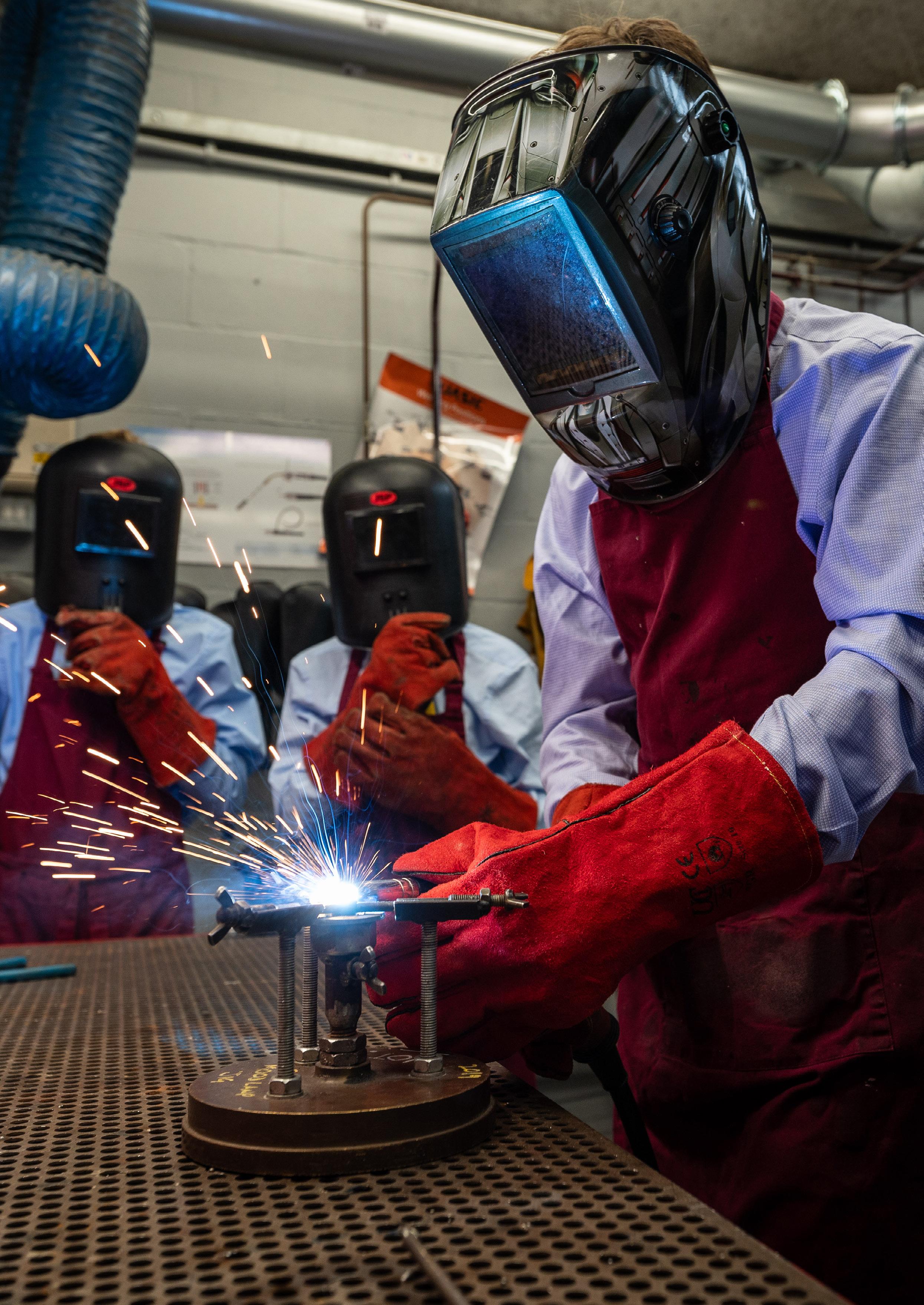
DRAMA
Why study Drama at GCSE?
Drama is a transformative subject for many pupils. During the two-year course, lifelong skills are acquired through a rigorous exploration of Acting, Theatre and Creative Analysis. The study of Drama provides pupils with a safe and supportive space to build confidence and learn the art of effective communication and group collaboration. It also enables learners to understand the importance of self-discipline, risk-taking and deadlines. This artistic subject teaches the importance of empathy and creativity, contributing to the development of a pupil’s self and social awareness; vital personal traits in today’s global society. Transferable skills are developed throughout the course, supporting the learning of other subjects at GCSE and beyond in further academic study and their professional lives.
What are the key features of the Drama GCSE course?
The Drama course provides a stimulating creative and academic programme of study which combines practical and written elements. The core modules provide pupils with the opportunity to express themselves in an active and intellectual capacity, and perhaps more importantly, a physical outlet to their timetable of other desk-bound subjects. Through studying Drama, students will have the opportunity to extend their experience, understanding and knowledge of the following key units:
1) Acting and Performance
Students study the craft of acting by exploring a range of ‘characterisation’ and acting techniques. Frequent practical workshops enable the students to develop their knowledge of acting and performance skills in a supportive and encouraging environment. As part of the course, students will be required to rehearse and stage a variety of plays, scene extracts and monologues. This aspect of the course naturally allows students to understand the importance of effective communication and how to create a ‘presence’ and be engaging when speaking before an audience. There is also the opportunity to offer a design skill instead of acting; if a student has a strong interest in lighting, set, sound or costume then he is able to pursue this area of interest with additional support from the Drama Department’s Theatre Team who have all worked professionally in the industry. Students will continue to work alongside their peers, as their designs will fully support the scripted performances. The unit culminates in a practical scripted exam marked by a visiting examiner (20% overall).
2) Devising and Collaboration
Students are given the opportunity to create and perform new and original work; working collaboratively in small groups, students will take part in a series of practical workshops exploring various theatrical genres and theatre practitioners. The practical work is supported by a Devising Log – a written record reflecting on the creative process and final performance. This unit is externallymoderated (40% overall).
3) Live Theatre and Script Analysis
Students are taken to see a range of professional live theatre productions, both locally and in London. These trips significantly increase their experience and understanding of effective performance (acting and design) as well as providing opportunities for students to see how theatre can be used as a way of questioning or challenging political, social and cultural events, both present and historical. In addition to live theatre, students will explore a complete script from a rehearsal, performance and design point of view. Live theatre and script exploration will extend students’ creative analytical skills; they will learn how to analyse and reflect on the effectiveness of key performance choices (acting and design) and understand how theatre is used to reflect the world around us. This unit is assessed through a written exam at the end of the course (40% overall).
You can read the full specification here.
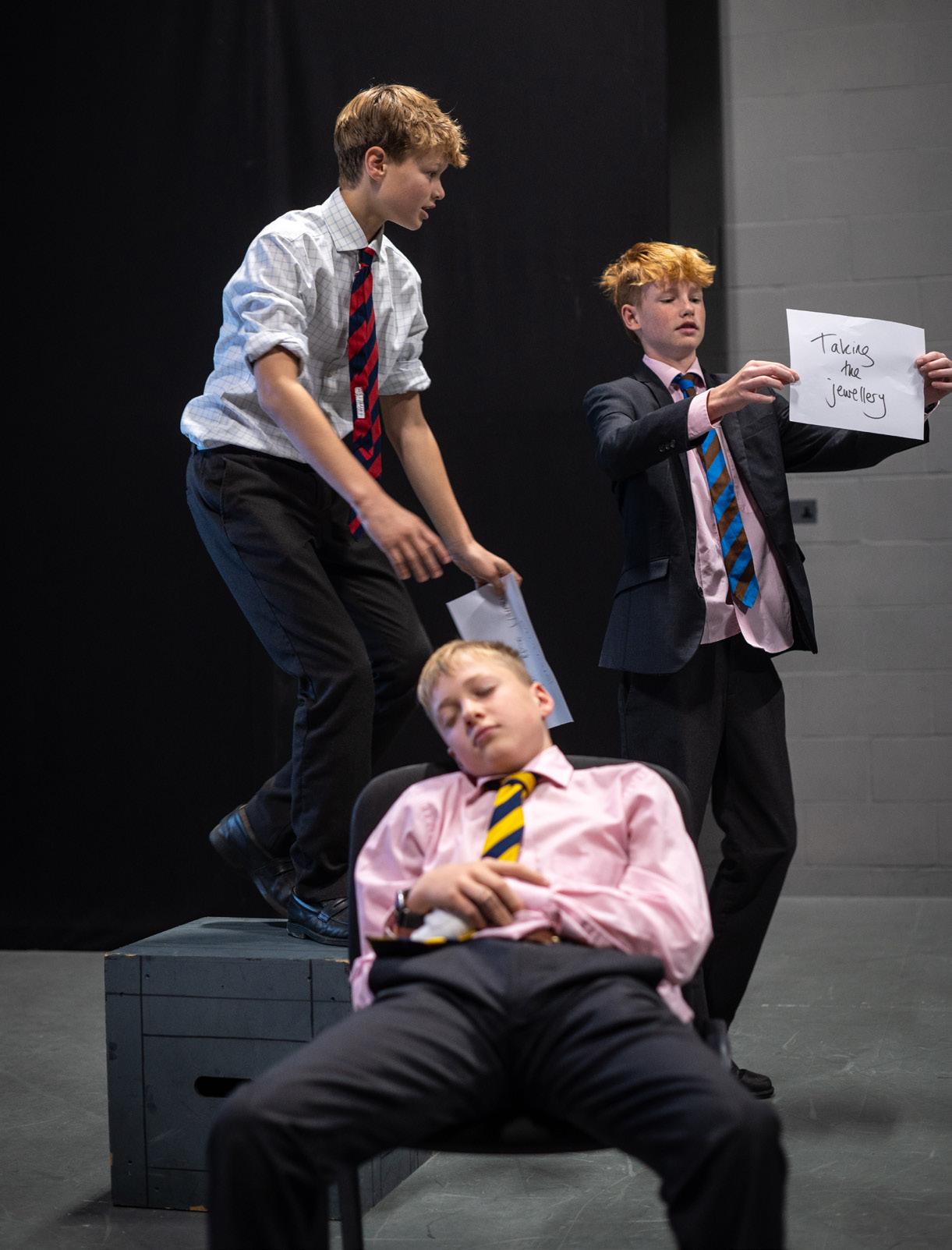
FRENCH
Why study French at IGCSE?
Studying French at IGCSE will open the door to a world of professional, academic and social opportunities. Proficiency in the language is a great asset in fields such as business, international relations, law, philosophy and linguistics.
Be it Belgium, Luxembourg, France, Canada or Switzerland, Francophone countries play a central role on the international stage. The number of speakers is growing quickly and set to exceed 750 million people by 2050 according to the latest projections. Forbes Magazine has dubbed French the ‘language of the future’, stressing its global dimension. It is an official language of the UN, NATO and the EU as well as UNESCO, the International Olympic Committee, Médecins Sans Frontières, the International Red Cross and international courts.
Given that about 40% of English vocabulary comes from Latin via French, a good knowledge of the language allows learners to broaden their understanding and mastery of English. At Radley, French is taught by a friendly, international team. Personalised support and extension sessions are on offer. The culture is associated with legendary cinema, literature and art, which are brought alive through lessons and enrichment activities. The department also celebrates cultural occasions throughout the year. We have a long-standing relationship with a school near the centre of Paris, and there are opportunities during both the IGCSE and A-Level courses to take part in the annual French exchange trip.
The IGCSE course champions intellectual curiosity and technical proficiency. We firmly believe that the study of modern languages encourages learners to develop lifelong skills, including the ability to communicate outside of the classroom. Pupils develop an insight into the culture and civilisation of countries where the language is spoken as well as a positive attitude towards language acquisition in general. From analysis to memorisation, key learning strategies can be applied to other areas of study. At the same time, gaining confidence in a second language can increase resilience and employment prospects.
What are the key features of the French IGCSE course?
The syllabus covers five topic areas with the aim of fostering engaged, confident and reflective learners:
• Everyday activities
• Personal and social life
• The world around us
• The world of work
• The international world
The syllabus fosters key linguistic skills. Comprehension is essential, so developing learning strategies and a disciplined approach to work outside the classroom is key. A firm grasp of basic grammar is also important. Verb tenses must be mastered to achieve top grades, for example.
An IGCSE in French is a highly respectable standalone qualification that allows further study of the language to A-Level and beyond. There are numerous degree courses where one language complements another area of study, be it law, business or international development.
You can read the full specification here
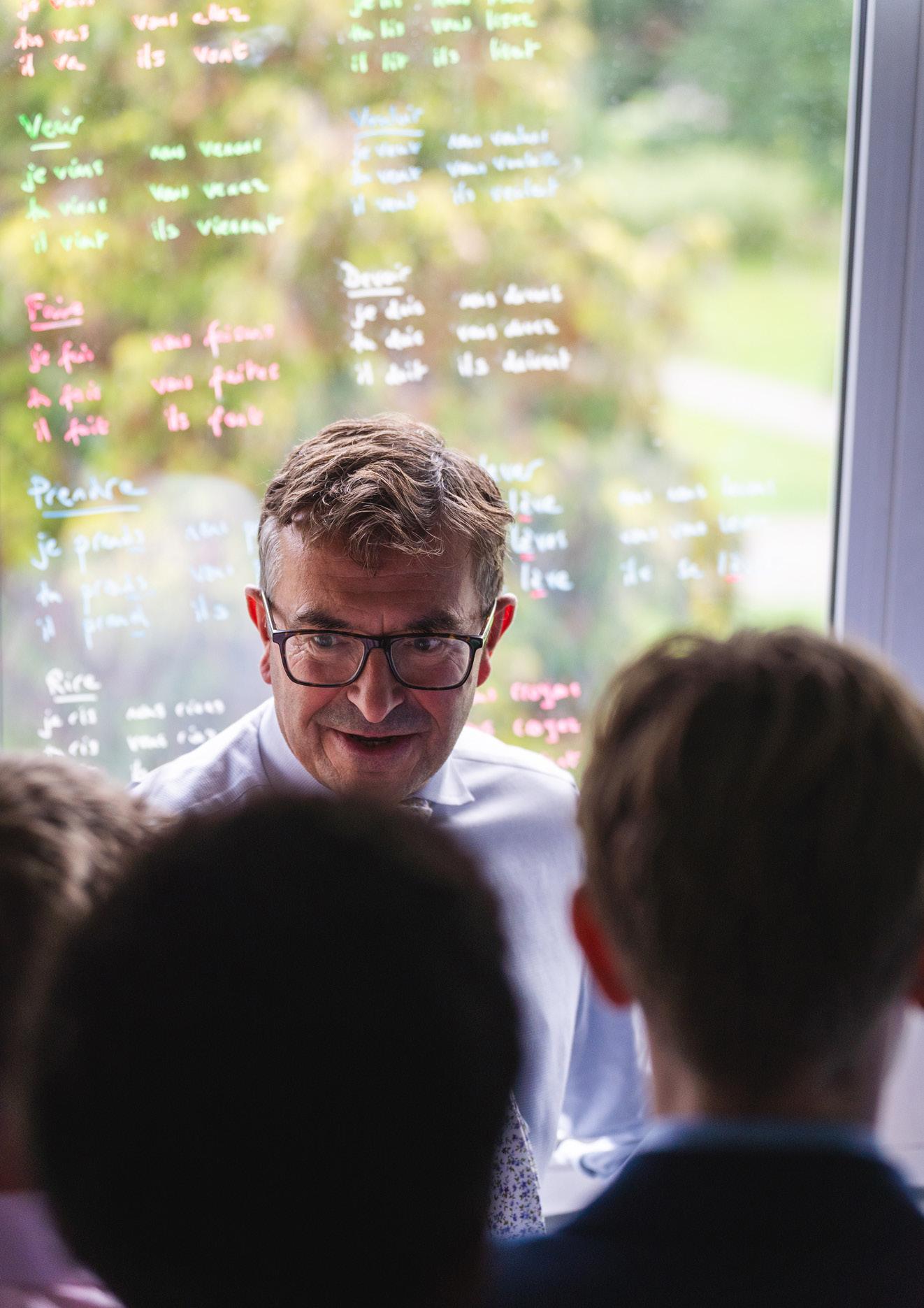
GEOGRAPHY
Why study Geography at IGCSE?
Geography is one of the most relevant subjects students can study. It helps them understand how the world works—how people, places and natural environments interact, and why global and local events unfold the way they do. The course is broad and varied, combining human and physical geography, and every topic connects directly to real-world issues. Lessons frequently link to current events, helping students make sense of what they see in the news. As students move through the course, they deepen their understanding of geographical issues close to home while also developing a wider awareness of global challenges. Themes of sustainability run throughout the course, encouraging students to think about how the world may change in the future.
A key part of IGCSE Geography is carrying out geographical investigations. Students take part in fieldwork that includes collecting primary and secondary data, presenting and analysing their findings, drawing conclusions, and evaluating the whole enquiry. This practical approach is enjoyable, builds confidence and equips students with valuable skills for further study and life beyond school.
What are the key features of the Geography IGCSE course?
The IGCSE Geography course is assessed through two exam papers, which helps students to organise their notes and revise accordingly. They are encouraged to draw links between topics at all times.
Paper 1: Physical Geography (1 hour and 10 minutes)
Section A
Students study two major physical geography topics:
· Hazardous Environments: The characteristics and distribution of natural hazards, including volcanoes, earthquakes and tropical storms, how hazards are measured, their impacts, and a comparative case study on earthquake management. This is introduced in Shells.
· River Environments: The global hydrological cycle, the physical processes that create distinctive river landforms, and case studies showing how rivers are managed in different parts of the world.
Section B
Students complete a geographical investigation on rivers. This involves applying their classroom learning to the real world through fieldwork at the River Ock in Abingdon, including data collection, analysis and evaluation.
Paper 2: Human Geography (1 hour and 45 minutes) Paper 2 brings together human geography and people – environment interactions. It is divided into three sections:
Section A
Students answer questions on two topics:
· Economic Activity and Energy: Variations in economic activity over time and space, the relationship between population and resources, and case studies on energy resource management in contrasting locations.
· Urban Environments: Trends, characteristics, and challenges in urban areas, along with detailed case studies of different cities.
Section B
Students apply their learning to a second fieldwork investigation, this time focusing on an urban enquiry. Data is collected during a fieldtrip following a transect into Oxford city centre.
Section C
Students explore global themes through Development and Human Welfare. They examine different ways of measuring development, patterns of uneven development, the consequences of these patterns, and strategies used to reduce development gaps.
Studying Geography at IGCSE equips students with a wide range of practical and transferable skills – mapping, data handling, IT, graphical skills, analysis, evaluation, alongside extended writing. Lessons are active, varied and enjoyable, with plenty of opportunities to explore real-world issues that genuinely matter. Students often say they love seeing how what they learn in class connects to what’s happening around them, and they gain real confidence as they develop a deeper understanding of the world and their place within it.
You can read the full specification here
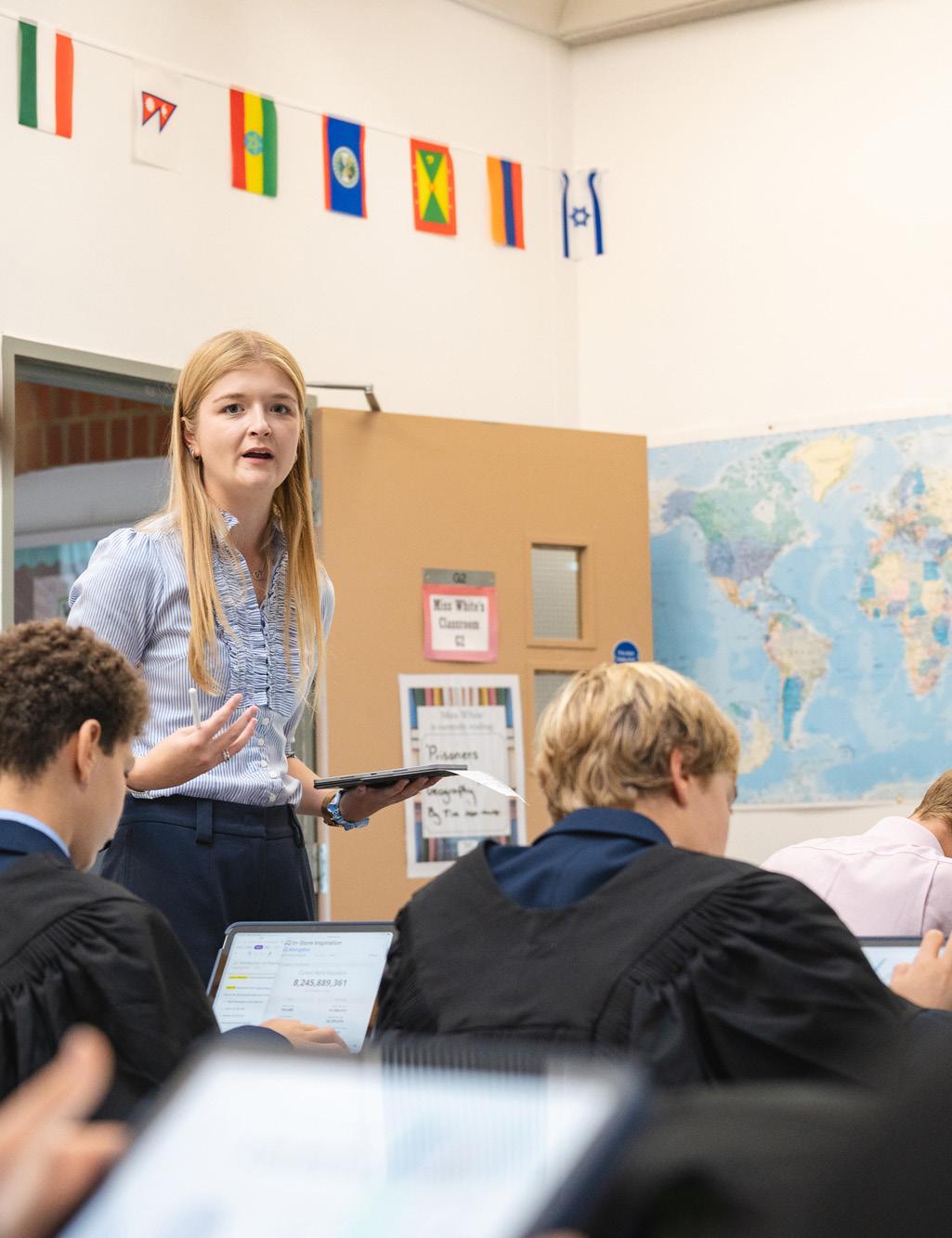
GERMAN
Why study German at GCSE?
Learning German will make you stand out from the crowd at Radley and beyond. It is arguably the most attractive foreign language to British employers, which can mean more opportunities in fields such as engineering, finance, architecture, green energy and pharmaceutical sciences as well as a higher average salary. At the same time, there are more native speakers of German than any other language in the European Union. From scientists and composers to philosophers and sporting greats, countless cultural giants have Germanic roots.
Boys in the Shell year who are learning German will know that the language shares many words and sounds with English. There are also far fewer irregular verb forms and tenses compared to French and Spanish. Reasons such as these mean that pupils can make rapid progress with a high level of enjoyment.
The Radley course is designed to take beginners through to the GCSE in three years. There are typically two sets and a wide range of support sessions, taught by a small and friendly team. Boys are invited to take part in exchange programmes with partner schools. There is also a series of vibrant social and academic events each term, from Oktoberfest and an indoor Christmas market to film screenings, translation competitions and poetry recitals. In the Sixth Form, students of German are invited to visit Berlin.
The GCSE course promotes communicative competence, technical proficiency and intellectual curiosity. Boys are also encouraged to express their creativity and to explore new cultural experiences. Of course, the study of any modern language also enables teenagers to develop vital social and communication skills, all of which can boost their performance and confidence in other areas of the curriculum.
What are the key features of the German GCSE course?
The syllabus covers six broad thematic contexts:
• My personal world
• Lifestyle and wellbeing
• My neighbourhood
• Media and technology
• Studying and my future
• Travel and tourism
The course develops key linguistic skills while allowing space for creative and personalised approaches to the syllabus. Comprehension skills are essential, so boys must acquire a disciplined approach to independent study outside of the classroom. In addition, there is an emphasis on fundamental grammar: mastery of word order and verb conjugations empowers learners and enables them to achieve top grades.
A GCSE in German is an impressive standalone qualification but can also open the door to A-Level and beyond. A top-tier degree in modern languages often requires two languages, although there are countless other courses where German can complement another area of study, be it law, business, engineering or international development.
You can read the full specification here
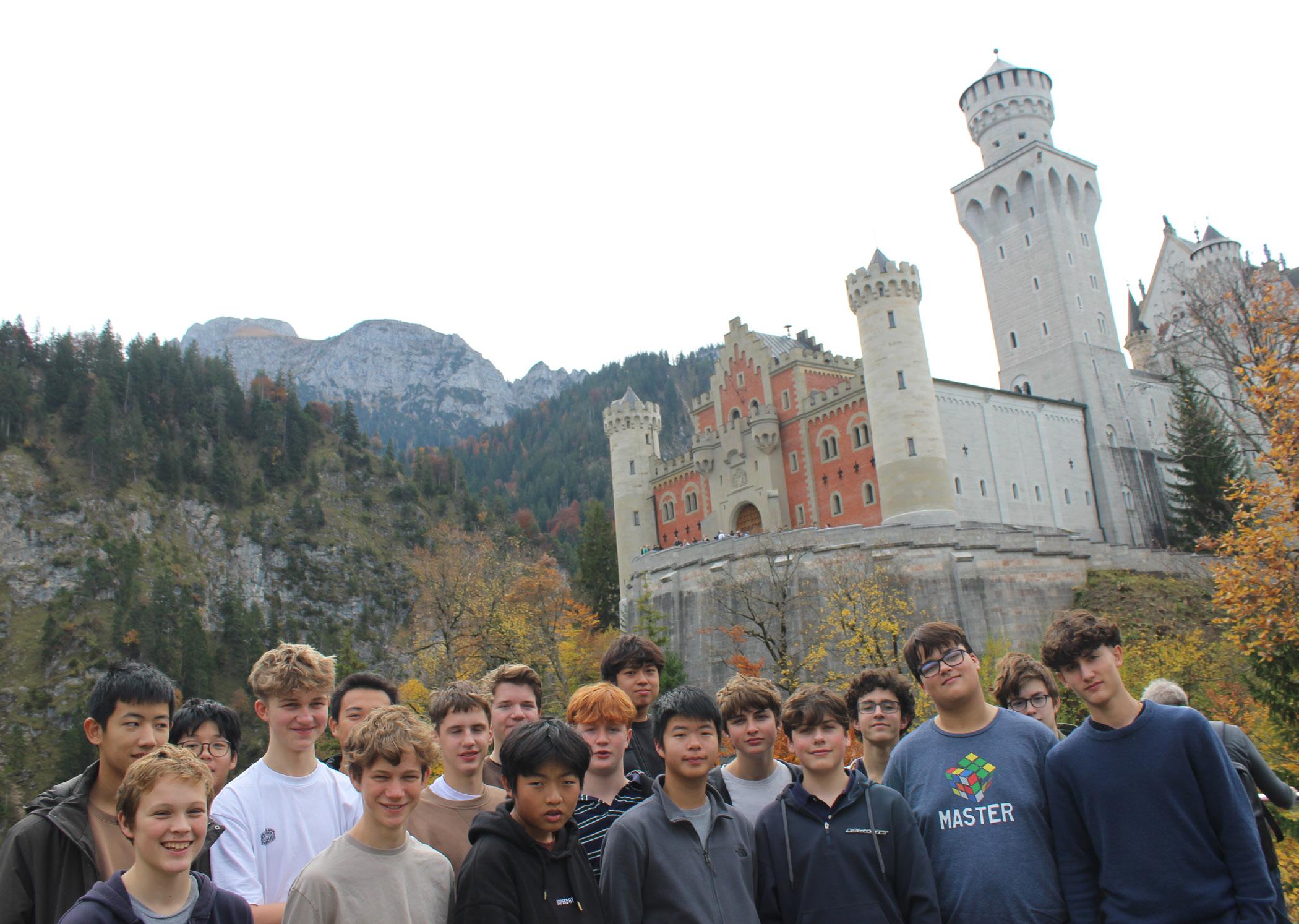
HISTORY
Why study History at IGCSE?
History at IGCSE allows boys to study the more fascinating aspects of the 20th century, giving a greater understanding of the world in which they live today. They will learn to understand important concepts including political ideologies, ranging from communism to nationalism, the nuances of international relations, and the exercise of government authority and challenges to it. They will encounter notable figures, including Lenin, Stalin, Mao, Martin Luther King and Richard Nixon. In doing all this, they will learn to think more critically, to analyse claims, to argue effectively, to sift fact from opinion and challenge their own thinking. They will develop more accurate language skills and learn to persuade others, in person and on paper.
What are the key features of the History IGCSE course?
We study the Edexcel 4HI1 IGCSE course (2019 specification). The topics we currently offer are:
• A Divided Union: Civil Rights in the US, 1945-74. Learn about the hysterical fear that developed in the US at the start of the Cold War, the struggles of Martin Luther King for racial equality, the protests against the Vietnam War and President Nixon’s scandal over Watergate.
• Russia and the Soviet Union, 1905-24. Watch Nicholas II abdicate, moderate government fail and the Bolsheviks storm to power in their Marxist revolution, before facing the challenge of civil war.
• Dictatorship and Conflict in the USSR, 1924-53. Study Stalin’s successful efforts to energise a backward economy, defeat the Nazis and make the USSR one of the global superpowers. Then consider the cost of that: more than 50 million questionable deaths.
• China: Conflict, Crisis and Change, 1900-89. Consider the changes across the 20th century, from Emperor, to warlords, to Nationalists, then Communists under Mao and finally the development into an economic superpower under Deng Xiaoping.
• The Middle East: Conflict, Crisis and Change, 1917-2012. Revisit the struggles between Arabs and Israelis, including the creation of Israel, the Suez Crisis, Yom Kippur, and the PLO in a story that continues to this day.
Boys will also develop skills allowing them to:
• Analyse and question events to develop a deeper understanding of the past and, thereby, the present.
• Deliver persuasive arguments in person and on paper.
• Investigate documentary source material and use it to understand contemporary views.
• Recognise historians’ arguments and challenge them.
You can read the full specification here
LATIN
Why study Latin at GCSE?
Latin is a challenging and well-respected GCSE. You should study it if you are a good linguist and will enjoy the challenges an ancient language poses, and if you enjoy literature of any kind. Although it is true that having a good grade in the subject under your belt will lend your UCAS form or CV an academic cachet, this is not a good reason to take it, unless you are also likely to enjoy it. If you wish to study a traditional Classics course at university, Latin will almost certainly be a necessary starting point. Latin A-Level and a Classics degree offer similar challenges and rewards to the GCSE course and are again widely respected in the world of work, leading to many careers, from journalism to The City. An understanding of some of the Classical foundations of modern western culture is obviously a great attribute to acquire in one’s school education, whatever your future aspirations.
We offer the OCR course over the Remove and Fifth years; it is necessary to have laid good foundations in the language during the Shell year in order to take on this subject at GCSE; typically 45 to 55 boys do so, across four sets in two option blocks.
What are the key features of the Latin GCSE course?
There are three papers. The 90-minute language paper tests your ability to translate adapted passages into English and to complete comprehension questions. The first two terms of the Remove year are focused on building up the competence to do well on this paper.
The other two papers test your appreciation and understanding of original Latin literature, a prose set text and a verse one. In the summer term of the Remove year and the first term of the Fifth year we read these texts in class and develop the ability to answer comprehension and literary appreciation questions. Typically, boys will read Tacitus or Pliny, and extracts from Virgil’s Aeneid. There are short answer questions and also ones worth 6, 8 and 10 marks, the latter being a short essay on a theme or character in the texts. This part of the course needs skills similar to those required by the English Literature GCSE, as well as the ability to tease out the meaning of the original Latin.
You can read the full specification here.
MUSIC
Why study Music at GCSE?
Our aim at Radley is to recognise and nurture each boy’s individual talent through the widest range of musical experience and encourage him to develop a life-long interest in music. In the Edexcel GCSE course, pupils have the opportunity to explore a wide variety of music and acquire the skills, knowledge and understanding needed to make music, both individually and in ensembles. Alongside this, pupils will acquire critical listening and musical analytical skills and also broader lifeskills and attributes, including creative and critical thinking, aesthetic sensitivity, and emotional and cultural development.
What are the key features of the Music GCSE course?
The GCSE course is designed to allow the study of music through the integration of performing, composing, listening and appraising, and music technology. A broad range of music is experienced which is structured around four prescribed Areas of Study:
1. Instrumental Music 1700-1820
2. Vocal Music
3. Music for Stage and Screen
4. Fusions
In each Area of Study, pupils perform, compose, analyse and appraise music, building on skills developed in the Shell curriculum, preparing them for A-Level Music, and enhancing their individual instrumental programmes. These skills are developed outside the classroom through individual instrumental lessons, workshops with professional musicians, departmental outings, and concert visits. The curriculum is designed to be flexible and responsive to the strengths and needs of particular groups of pupils. In both years of the two-year course, pupils will participate in a commissioned composing project working alongside professional performers.
Pupils are assessed regularly through solo and ensemble performing. During the two-year course, pupils build up a portfolio of instrumental performances which form 30% of the final assessment. Pupils explore the skills needed to compose music for different acoustic instrumental and/or vocal forces and learn to use Sibelius to create scores. Pupils compose a portfolio of acoustic compositions which form 30% of the final assessment. Pupils develop their knowledge and understanding of musical elements and their contextual understanding of music through the study of eight prescribed works. Pupils sit an appraising paper at the end of the course which forms 40% of the final assessment.
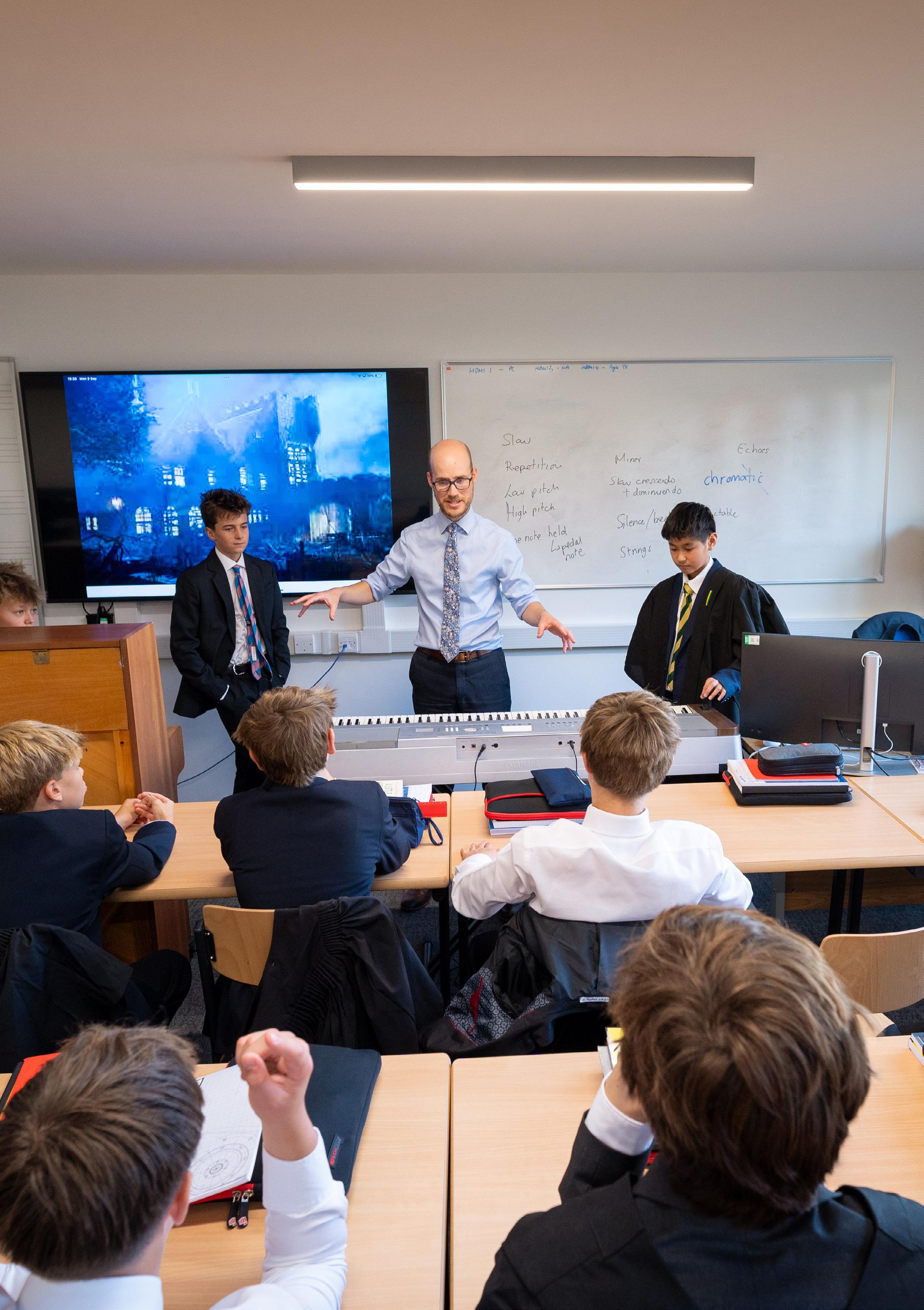
SPANISH
Why study Spanish at IGCSE?
Spanish is one of the most widely spoken languages in the world, with around 500 million native speakers, making it the second most spoken language globally by number of native speakers. The British Council consistently identifies Spanish as one of the most important and popular modern foreign languages for British students to study, reflecting its practical value for travel, higher education, and future careers. As international trade and cooperation continue to grow across Central and South America, employers increasingly seek linguists who can work confidently in Spanish. This expanding global influence means that Spanish speakers are more in demand than ever before, across fields such as business, tourism, law, diplomacy, media, and international development.
Of course, learning Spanish also enables pupils to appreciate new types of music, film and literature.
Pupils with a decent grounding in French find the structure of Spanish grammar accessible, while the phonetic nature of the language makes it an attractive option.
The IGCSE course establishes a good framework for further study as it champions intellectual curiosity as well as technical proficiency. At the same time, learners develop practical communication skills in a foreign language, an insight into Hispanic cultures and a positive attitude towards language acquisition in general. Pupils improve their ability to analyse and memorise information, which helps in other areas of study. They are also able to gain resilience – a crucial requirement for future study.
The Radley course is designed to take beginners through to IGCSE in three years and establish a strong foundation in Spanish. Pupils have the opportunity to take part in a thriving exchange programme with a partner school in Barcelona. In the Sixth Form, there is a language and culture trip to Madrid.
What are the key features of the Spanish IGCSE course?
The syllabus covers five topic areas with the aim of fostering engaged, confident and reflective learners:
• Everyday activities
• Personal and social life
• The world around us
• The world of work
• The international world
The course develops key language skills while providing access to cultural topics. Comprehension is essential, so developing learning strategies and a disciplined approach to work outside the classroom is key. There is a real emphasis on developing a firm grasp of grammar: tenses must be mastered for a top grade, for example.
An IGCSE in Spanish is an excellent standalone qualification but also allows boys to study at A-Level and beyond. A degree in Modern Languages can open many doors and will also complement other areas of study.
You can read the full specification here
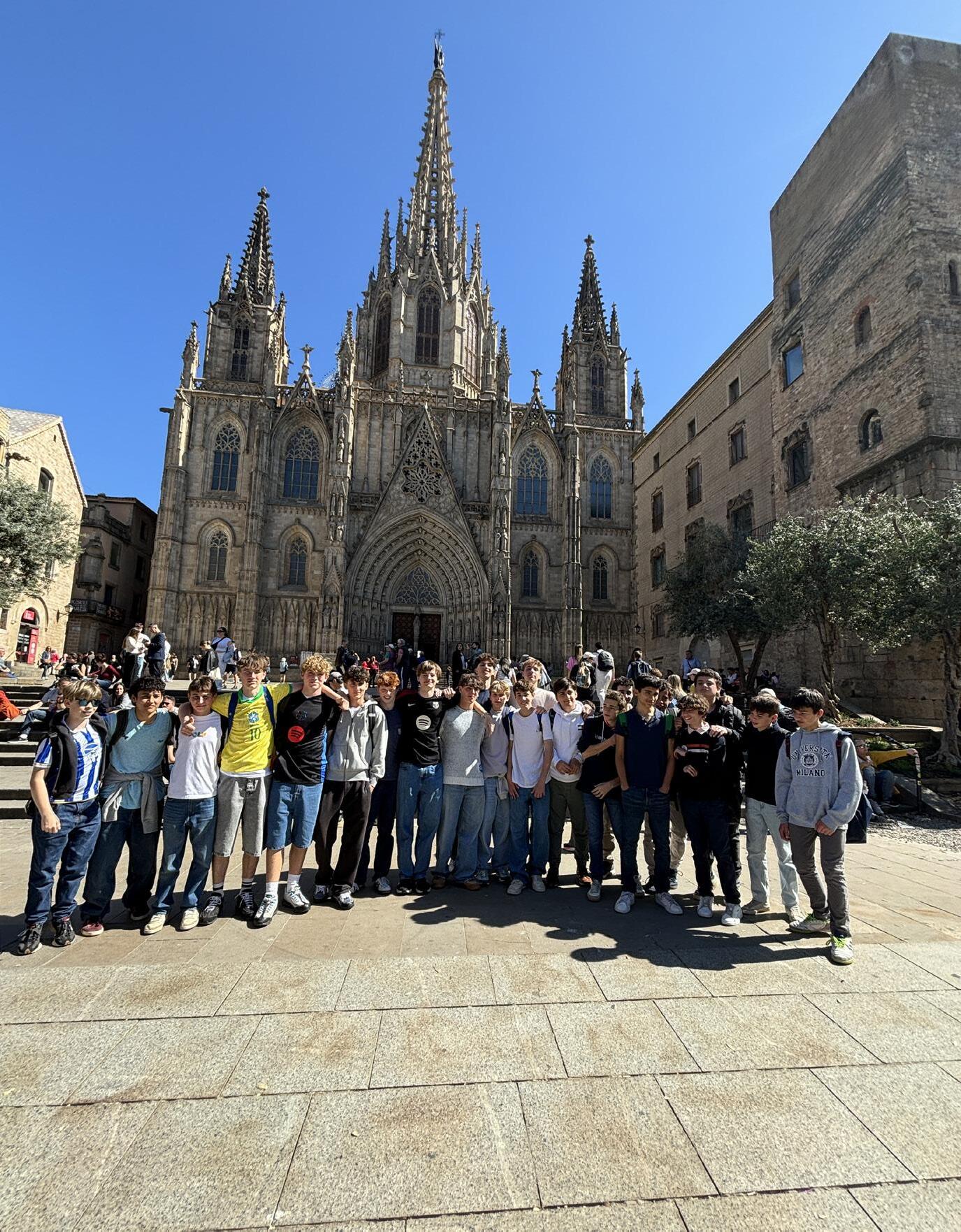
THEOLOGY & PHILOSOPHY
Why study Theology and Philosophy at GCSE?
In GCSE Theology and Philosophy students are given the opportunity to study the great questions that can be asked about religion, God, life, truth, morality, and meaning. Students who are interested in thinking about these themes will enjoy the GCSE Theology and Philosophy course.
Throughout the course students are equipped to analyse religious truth-claims and ethical questions, and to form their own justified points of view.
The GCSE course develops key skills which provide a strong basis for many A-Level courses, including essay-writing, critical analysis and evaluation of viewpoints, and forming well-justified arguments.
The course also develops skills that are useful in life, beyond academic studies:
• The study of major world religions equips students with knowledge of different belief-systems and cultures, which is of real practical use in an increasingly globalised world.
• The in-depth study of current ethical issues (such as euthanasia, abortion, war, gender) equips students to engage knowledgably and intelligently with key debates that continue to feature in modern society, and are frequent themes in politics and the media.
What are the key features of the Theology and Philosophy GCSE course?
We follow the AQA Religious Studies GCSE course which has two components:
Paper 1: The Study of Religions (Christianity and Buddhism)
Paper 2: Thematic Studies (ethical dilemmas such as abortion, euthanasia, homosexuality, gender, war etc)
78In Paper 1 students are introduced to the key ideas of two major world religions: Christianity and Buddhism. Students begin by studying the core beliefs and doctrines of each religion, and then move on to studying the variety of ways that each religion is practised throughout the world. Throughout the course, students are encouraged to question and analyse the truth-claims of each religion, and to develop logical and insightful conclusions of their own.
In Paper 2 students will focus on a range of current non-religious ethical dilemmas. For each ethical issue students are introduced to the key arguments on both sides of the debate, and they will encounter a wide range of different responses to various ethical questions. Students will learn to understand and engage with views that may be different from their own, and to recognise that there are a range of different perspectives in British society. Each student will develop the ability to form their own well-justified point of view, and to express this coherently, respectfully, and convincingly.
At the end of the course students will sit two exams, one for each paper. Each exam lasts for 1 hour 45 minutes. There is a standard format that each exam follows, and students practise exam technique regularly throughout their studies, ensuring that they are very familiar with exam requirements.
